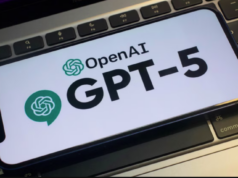Artificial Intelligence (AI) is reshaping the way we interact with technology. One of the most significant advancements is in the field of information retrieval. Traditionally, people relied on search engines like Google to find information. However, AI-based tools like ChatGPT are offering a new, conversational approach. Both methods serve to answer questions, but they work in very different ways. This article will explore how “AI Ask” functions, comparing it to traditional search engines like Google, and will focus on the roles of AI tools like ChatGPT in this space.
The Evolution of Information Retrieval
The Internet is the primary source for information in today’s world. For the longest time, search engines like Google have dominated this space. Google uses algorithms that rank web pages based on relevance, user behavior, and backlinks. The user inputs a query, and Google displays a list of web pages, blogs, or articles that match the search term.
In contrast, AI ask tools like ChatGPT function more like a conversation. Instead of providing a list of potential answers, ChatGPT gives you a direct response based on its knowledge database. This is a significant departure from the traditional search engine model and raises important questions about which approach is better suited for specific types of queries.
How Google Works
Google, the world’s leading search engine, uses complex algorithms to retrieve the most relevant pages based on your query. Google’s algorithm takes into account factors like:
- Relevance: How closely a webpage matches the search term.
- Authority: How trustworthy the website is, measured by backlinks and domain age.
- User behavior: How often people click on a link or how long they stay on the page.
Google is designed to show users the most relevant information from a broad range of sources. It’s excellent for retrieving large amounts of information quickly and efficiently. However, it’s not always the best for answering nuanced or specific questions directly.
How ChatGPT Works
On the other hand, ChatGPT is an AI-powered tool designed to mimic human conversation. When you ask a question to ChatGPT, it processes your input and provides a response based on its training data. ChatGPT has been trained on vast amounts of text from books, articles, and websites. The AI system does not search the web in real-time; rather, it generates responses based on the patterns it has learned during its training.
Unlike Google, ChatGPT’s primary function is not to provide a list of web pages but to generate human-like text responses. This allows for a much more interactive and conversational experience.
Key Differences Between Google Search and AI Tools Like ChatGPT
Both Google and AI ask tools have their strengths and weaknesses. Here’s a breakdown of the key differences:
1. Direct Answers vs. Web Results
Google will give you a list of relevant websites when you type in a query. You will need to sift through these results to find your answer. In contrast, ChatGPT gives a direct answer to your question. If you’re looking for an exact response quickly, ChatGPT might save you time.
2. Contextual Understanding
ChatGPT is designed to understand context and maintain a conversation. You can ask follow-up questions, and the tool will keep track of the previous conversation to provide better responses. Google, on the other hand, doesn’t hold context. You would need to rephrase your query to get better results each time.
3. Depth of Information
Google excels in providing an exhaustive amount of data. If you’re researching a topic, Google will provide a wide variety of articles, blogs, and videos. ChatGPT, while helpful for answering specific questions, does not provide the same breadth of information. If your question requires detailed research or multiple sources, Google might be the better tool.
4. Real-Time Information
Google is updated continuously, which allows it to provide real-time data. ChatGPT, however, does not offer live updates. The model is trained on data available up to a certain point and does not have access to the latest information or breaking news. Google remains a superior tool for getting up-to-the-minute updates.
5. Accuracy and Verification
One of the main concerns with AI tools like ChatGPT is the accuracy of the information. Since ChatGPT does not have real-time access to the web, its knowledge is only as good as its training data. On the other hand, Google displays results from reputable sources, giving users the option to choose verified information. However, both systems can present information that is inaccurate or out-of-date, so users must be cautious and verify their sources.
When to Use Google Search vs. AI Ask Tools Like ChatGPT
Both tools are incredibly useful, but they shine in different scenarios. Let’s break down when to use Google and when AI ask tools like ChatGPT might be the better option.
When to Use Google
- In-depth Research: If you’re looking to dive deep into a topic, Google will provide you with multiple resources, articles, and viewpoints.
- Real-time Information: Google is best when you need the latest news or updates on a particular topic.
- Verification: Google allows you to cross-check multiple sources, ensuring the accuracy of your information.

When to Use ChatGPT or AI Ask Tools
- Quick Answers: If you’re looking for a quick, direct response to a simple question, ChatGPT is ideal.
- Conversational Queries: If you want to ask follow-up questions or need a deeper understanding through conversation, ChatGPT excels in this area.
- Creative Solutions: ChatGPT is also excellent for creative brainstorming, writing assistance, or solving open-ended problems.
The Role of AI Ask in Future Search Technologies
The emergence of AI ask tools is just the beginning of a new era of information retrieval. While traditional search engines like Google will continue to play a dominant role, AI-based tools like ChatGPT are carving out a niche. As AI technologies improve, we can expect to see more sophisticated models that blend conversational understanding with real-time data.
Google is already working on AI-driven solutions like Google Assistant, which attempts to combine the best of both worlds by providing real-time search results in a conversational format. However, AI ask tools like ChatGPT are setting a precedent for future development in how we interact with information.
Ethical Considerations
With the growing influence of AI ask tools, ethical considerations are coming into play. Since AI models like ChatGPT are trained on large datasets, there are concerns about the quality and sources of the information they use. AI tools need to be developed and maintained responsibly to ensure they provide accurate, unbiased, and trustworthy information. Users must also be educated on the limitations of AI tools.
Conclusion
AI ask tools like ChatGPT and search engines like Google both serve essential roles in information retrieval. Google excels at providing a vast array of web results, giving users the option to verify and cross-check multiple sources. On the other hand, AI ask tools like ChatGPT offer a more personalized, conversational experience.
As AI technologies continue to evolve, the boundary between traditional search and AI ask tools may blur. For now, the key is understanding when to use each tool to maximize efficiency and accuracy. In the future, these tools could converge to create a unified platform that offers the best of both worlds: the depth of Google and the contextual understanding of ChatGPT.









